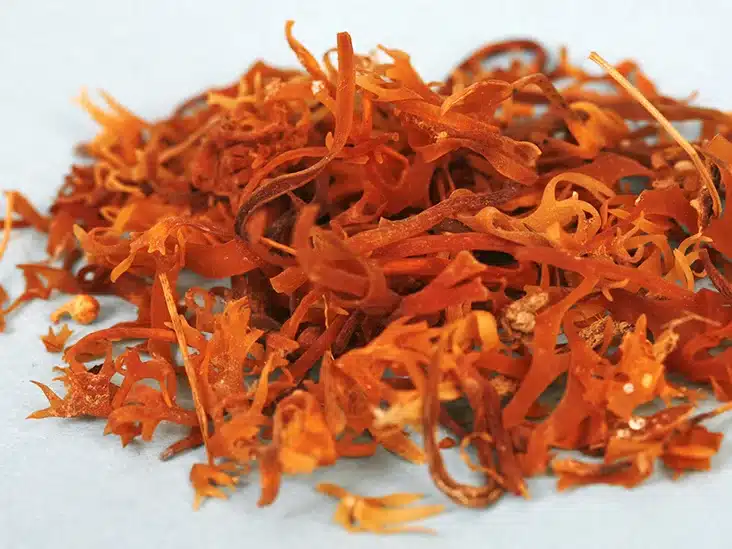
Sea Moss during Pregnancy: Benefits, Safety, and Incorporation into a Healthy Diet
Pregnancy is a monumental change in a woman’s life, and finding the right nutrients to help ensure a healthy pregnancy is essential. Long used in Caribbean cultures and yet still relatively unheard of in the United States, sea moss is proving to be an amazing and overlooked source of much-needed nutrients.
This natural superfood is packed with amazing minerals, vitamins, and amino acids beneficial for pregnant women and their growing babies. Studies have found it can aid in digestion and reduce inflammation in the body, providing pregnant women with numerous benefits that far surpass that of most other options.
Can You Take Sea Moss While Pregnant?
It is safe to take sea moss while pregnant but caution should be taken. It’s essential to note that sea moss can contain levels of hazardous metals like lead and cadmium, which could adversely affect both mother and child.
Sea moss may also interact with certain medications; for this reason, it is highly recommended that pregnant women speak with their healthcare provider before taking any supplement or medication.
As a general rule, it is suggested that women in pregnancy should abstain from using any medication that has not been approved by their healthcare provider since it could be potentially detrimental.
Is Sea Moss Safe While Breastfeeding?
When breastfeeding,
it is advisable to exercise caution when introducing a new food or supplement, as few studies have been conducted on the effects of consuming sea moss. Therefore, if you plan on ingesting sea moss,
it is recommended that you consult your healthcare provider for further advisement.
Is Sea Moss High in Folic Acid?
Sea moss is an excellent source of several vitamins and minerals including folic acid, iodine, potassium, iron, and calcium. As folic acid is especially pertinent for fetal development and overall health,
it is recommended that individuals consult a doctor before introducing sea moss into their diet; this is essential for pregnant women or people with existing health conditions.
Can I Take Seamoss Instead of Prenatal Vitamins?
Sea moss may provide a wealth of vitamins and minerals, including folic acid, which is essential for fetal health. It is imperative to note,
however, that sea moss should not be utilized as an alternative to pre-natal vitamins.
Pre-natal supplements are devised to fulfill the enhanced dietary requirements of pregnant women,
likely comprising more complete and balanced nutrients than those offered by sea moss. Prior to making any changes to one’s diet during pregnancy,
it is highly recommended to seek guidance from a medical professional or nutritionist.
How to Incorporate Sea Moss into Your Diet
There are numerous methods for incorporating sea moss into one’s diet. Here are some of the most popular choices:
Sea Moss Gel: A preferred means of taking in sea moss is to blend it with water and a sweetening agent, such as agave or maple syrup,
and use this resultant concoction as a thickening solution for smoothies, soups, and sauces.
Sea Moss Smoothie: One may also add the sea moss gel to a smoothie,
along with other ingredients like fruit, vegetables, and nuts.
Sea Moss Drinks: Adding sea moss to beverages like lemonade,
juice, or tea is another possibility.
Sea Moss Dishes: Incorporating sea moss into dishes such as soup, stews, curries, and gravies is a potential way to enhance their nutritional value.
Sea Moss Capsules: Receiving sea moss through capsules is additionally an option.
It is crucial to be aware that when consuming sea moss,
it is best to start out with a limited dosage then gradually increase as needed.
Additionally, consulting a health professional or nutrition specialist before introducing any new food into one’s diet is recommended,
particularly if there exists a health condition or pregnancy.
Recipe Ideas for Using Sea Moss
Sea Moss can be incorporated into several culinary recipes to produce both a balanced and nutritious end product. For example, one may opt to blend sea moss gel,
banana, berries, and almond milk for a wholesome and invigorating smoothie.
Additionally, this versatile substance can be added to vegetable or tomato soup for an enhanced creamy texture. Alternatively,
you can mix the gel with coconut milk, vanilla extract, and sweetener of choice to make a decadent yet healthy pudding.
To further enrich meals, concoct a salad dressing with olive oil, lemon juice, and herbs together with the gel.
Moreover,
its nutritional benefits can be enjoyed when included in your favorite juices or smoothies. Sea moss gel’s multifaceted nature offers yet more potential as a thickener or dairy substitute ingredient in recipes such as pasta sauce or desserts like pies, ice cream, and cheesecakes. When experimenting with this marine algae,
it is important to start with small portions and gradually increase until attaining one’s desired effect.
Conclusion
To sum up, sea moss is a nutritionally-rich ingredient with ample applications in food, most notably in mixed beverages, soups, sauces,
and sweets. It boasts an impressive nutrient profile comprising of essential vitamins and minerals like folic acid,
which are integral for healthy fetal development and general wellbeing.
Nevertheless, it is highly advisable to speak with a medical professional or dietitian before adding sea moss to one’s meal routine,
especially if expecting a baby or afflicted by a medical disorder. Coasting on the side of caution,
individuals should begin by consuming small quantities of sea moss and progressively increasing the dose to fit their standards.